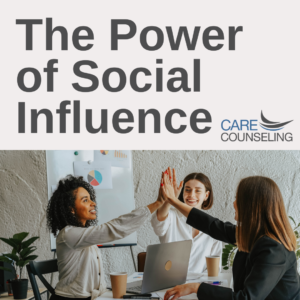Power of Social Influence
 Human beings are inherently social creatures. From the moment we are born, we are influenced by the people around us—family, friends, teachers, and even strangers. This intricate web of social interactions exerts a powerful influence on our thoughts, behaviors, and decisions.
Human beings are inherently social creatures. From the moment we are born, we are influenced by the people around us—family, friends, teachers, and even strangers. This intricate web of social interactions exerts a powerful influence on our thoughts, behaviors, and decisions.
Understanding Social Influence
Social influence refers to the process through which individuals or groups impact the thoughts, feelings, attitudes, and behaviors of others. It is a fundamental aspect of human socialization and plays a crucial role in shaping our identity and actions.
Types of Social Influence
Social influence can take several forms, including:
- Conformity: Conformity is the tendency to adjust one’s behavior, beliefs, or attitudes to match those of a group. It often arises from the desire to fit in or be accepted.
- Compliance: Compliance involves changing one’s behavior in response to a direct request from another person or group, even when personal beliefs may differ.
- Obedience: Obedience is the act of following orders or commands from an authority figure, even if it contradicts one’s own moral or ethical values.
The Power of Norms
Norms are unwritten rules and expectations within a society or group that guide behavior. They serve as a powerful force of social influence. Norms can be explicit, such as traffic rules, or implicit, like the expectation to maintain personal space in an elevator. Conforming to norms helps individuals avoid social rejection and create a sense of belonging.
The Influence of Peers and Social Groups
Peers and social groups have a significant impact on our behavior. Adolescents, in particular, are highly influenced by their peers. The desire to be part of a group and gain peer approval can lead to changes in behavior, both positive and negative. Peer pressure, when used constructively, can motivate individuals to adopt healthier habits or engage in prosocial activities.
The Role of Social Media
In the digital age, social media platforms have become powerful agents of social influence. The curated images and stories shared on social media can shape perceptions of beauty, success, and happiness. Likes, shares, and comments reinforce particular behaviors and validate social norms.
Celebrity Influence
Celebrities often serve as role models and sources of inspiration for many individuals. Their endorsements, preferences, and lifestyles can influence consumer behavior, from fashion choices to product purchases. Celebrity endorsements can also impact social and political attitudes.
Resisting Negative Social Influence
While social influence can be positive, it can also lead to negative behaviors or conformity to harmful norms. Resisting negative social influence requires critical thinking, assertiveness, and a strong sense of personal values. Building resilience to peer pressure and developing decision-making skills are essential for maintaining one’s integrity.
The Stanford Prison Experiment: A Cautionary Tale
The Stanford Prison Experiment conducted by psychologist Philip Zimbardo in the early 1970s illustrates the power of social influence and the potential for negative outcomes. The study showed how individuals, placed in positions of authority or subservience, quickly adopted roles and behaviors that deviated from their typical personalities. The experiment was halted prematurely due to the psychological distress it caused to participants.
The power of social influence is undeniable. It shapes our beliefs, behaviors, and even our identities. Understanding how and why we are influenced by others is a crucial step toward making informed decisions and living authentic lives. By being mindful of the influence of peers, media, and social norms, we can navigate the complex web of social interactions and make choices that reflect our true selves.



























